To view a list of the resources available to be reviewed, click here.
March 1, 2017
Convicted By the Spirit
Review by Pr. George C. Lautner
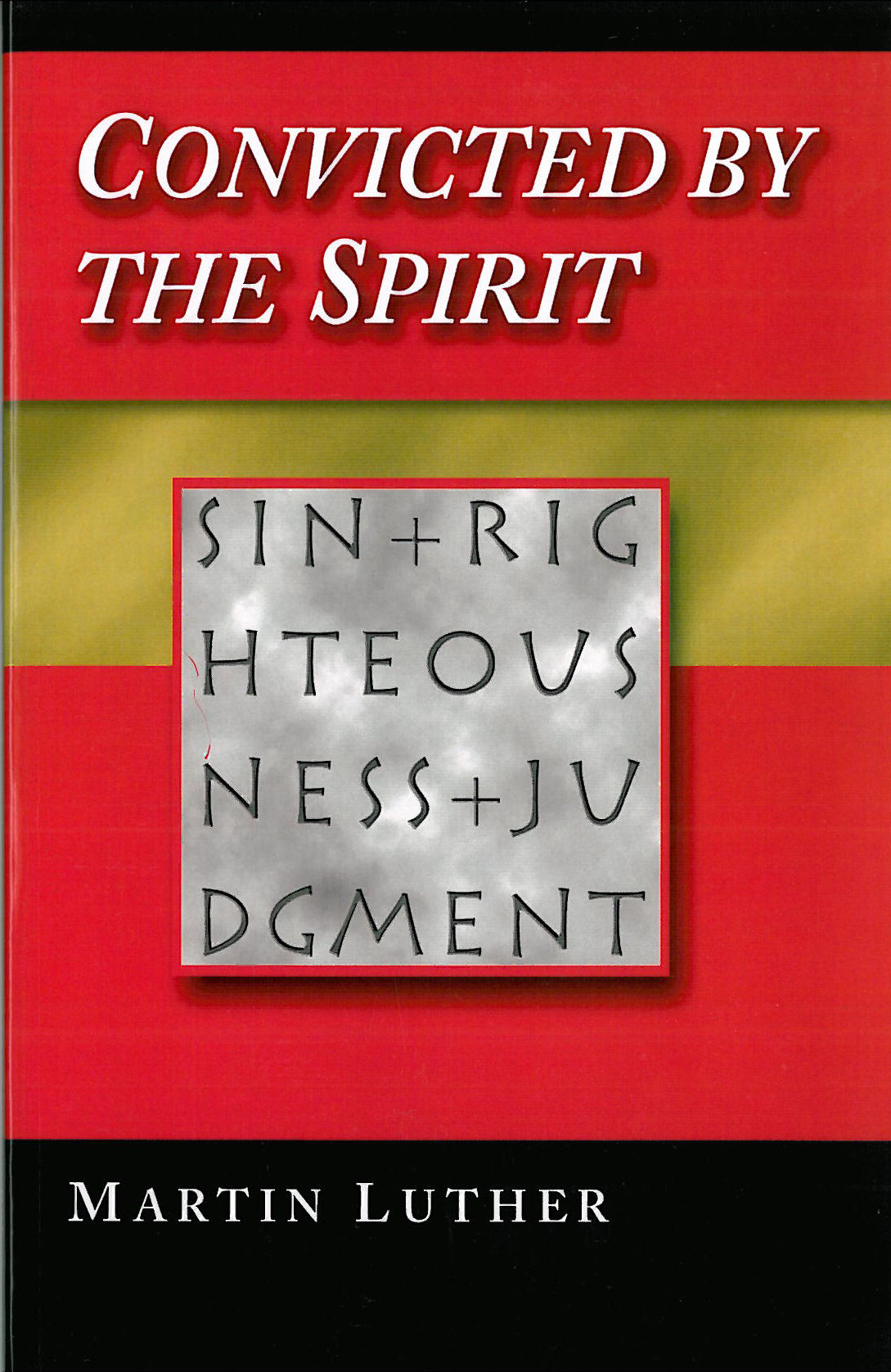
Convicted by the Spirit published by Lutheran Press is the written record of Luther’s Postil 235 – John 16:8‒13. This sermon was never preached publicly by Luther but was published with the intent that it would be read in public by someone other than the author. It’s committed to being a help in the preparation of a sermon or is to be read for personal edification of the one reading it.
Luther was requested to prepare such postils for pericopes every Sunday of the Church Year in 1520 by his sovereign, Fredrick the Wise. This was done as an act of grace, allowing Luther the opportunity to escape the firestorm that surrounded him. Luther saw it as a necessary task that would bolster the state of preaching in the congregations of his day. The condition of the preaching per Luther was “somewhat dim.”
What I learned from Luther was in the spirit of personal edification for the strengthening of my understanding of the grace of God in Christ Jesus. Someday I may use it again as a resource that helps prepare me, so that I may one day preach a sermon that is less than dim.
In the truth that we are always learning, I read with the intent that God would fill me with His grace as Luther expanded on the Word of Christ through his explanation of the Gospel of John 16:8‒13. I was not disappointed either by God or by Luther as he expounded upon Christ’s words,
And when the helper comes, He will convict the world of sin and of righteousness and of judgment. Of sin, that they do not believe in Me. Of righteousness, that I go to the Father, and you will no longer see Me. And of judgment, since the prince of this world is judged. I have many things to tell you, but you cannot bear it now. Yet when the comforter, the Holy Spirit, will come, He will guide you into all truth.
In the book, Luther provides the reader with keen insights into the mind of the world, the mind of those who teach error, the mind of the good man, and the mind of the Christian, and most importantly as he himself was guided by the Holy Spirit, the mind of Christ.
The book tutors us through the Word of God to see that our chief sin is our lack of faith for all things in Christ. Luther explains the truth that the righteousness attributed to us for the sake of Christ occurred as Christ went to the Father. The teaching moves to understand the world’s judgment and the truth that the world will, in fact, be judged for its pious attempts to undermine the work of Christ. Luther concludes with a scolding of the papists as they, instead of expounding upon the central theme of Christ in Scripture, proclaim that the words of Christ allow for extra-biblical intrusion of man’s thoughts that would provide the church with different knowledge than the knowledge proclaimed fully to the apostle by Christ and the truth that the Holy Spirit came to provide the apostle with greater understanding of Christ’s words, as all of Christ’s words point back to Himself as our Savior.
This book is a kind reminder of the error associated with an intermingling of man’s thoughts with God’s. The result of such striving will always end in disaster for the one who believes them to be true.
My prayer for you is that you will find your true blessing in Christ Jesus, as Luther points you to Him through Postil 235 – John 16:8‒13, Convicted by the Spirit.
Pr. George C. Lautner
Living Faith Free Lutheran Church/Middle Grove Lutheran Church
Larimore, ND/Mekinock, ND
Order your copy here: Ambassador Publications Online Store
March 8, 2017
Martin Luther: A Guided Tour of His Life and Thought
Review by Pr. Eric Rasmussen
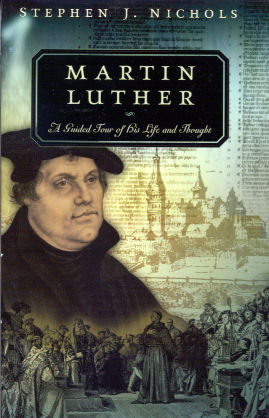
Most books about Martin Luther are either biographical or theological, but this book by Stephen J. Nichols is both. This book is “a marvelous mixture of biography, history, theology and anecdote” (Sinclair B. Ferguson, back cover).
Part 1 focuses on the history. Nichols maintains a historical perspective, rich in context, while mixing in the theological aspects that shape the history. He mentions the “anfechtungen,” or spiritual struggle that marked Luther’s early spiritual life. For Luther though, the anfechtungen led him to God’s Word and the saving Gospel therein. Nichols then weaves the reformation solas into the history of the next periods of Luther’s life. It is important to recognize that the Church was changing rapidly during Luther’s lifetime. But the socio-economic and political landscapes were changing just as rapidly, and Luther was at the center of it all. Despite his ongoing conflicts and the chaos around him, Luther pastored his church, preached multiple times every week, and lectured regularly. He found joy in his marriage, family, and in translating the Bible into the everyday language of the people.
Part 2 of Nichols’ book is called “Luther, the Reformer.” This part centers on Luther’s theology by giving an overview and by centering on several of Luther’s most important theological writings.
The last part of the book shifts from how Luther revolutionized theology to how he revolutionized the Church. Luther was a pastor every bit as much as he was a reformer or a theologian. The book points to the Small Catechism, his love for children, music, and his sermons as evidence of his care for and reformation of the Church.
I enjoyed reading this book. The book was not overly academic or in-depth, but it was a great overview of who Luther was and what he did. If you are pressed for time or only desiring to read one book about Martin Luther, this book should receive strong consideration. Martin Luther changed the world as much as about anyone since Jesus lived on earth, so it’s hard to boil down Luther to one or even several main thoughts. However, I was struck by the note about the portrait of Luther that close friend Lucas Cranach painted shortly after Luther’s death in 1546. “Cranach captured Luther’s entire life and purpose in this three-paneled painting” (19). Notice Luther preaching in one panel; the congregation featured on the opposite panel. However, the focus from both side panels was the middle panel—Christ on the cross. Martin Luther’s life summed up by a painting—his life was about pointing all to Christ.
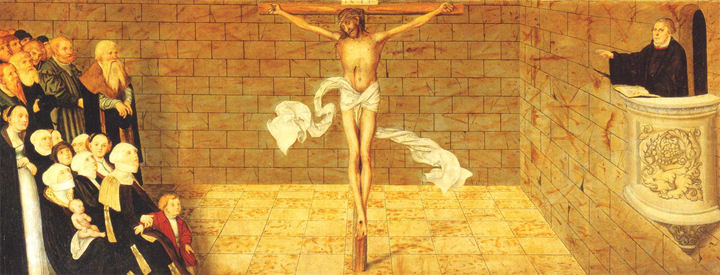
Pr. Eric Rasmussen
Calvary Lutheran Church
Fergus Falls, MN
Order your copy here: Ambassador Publications Online Store
March 15, 2017
Luther's Large Catechism
Review by Pr. Jason Gudim
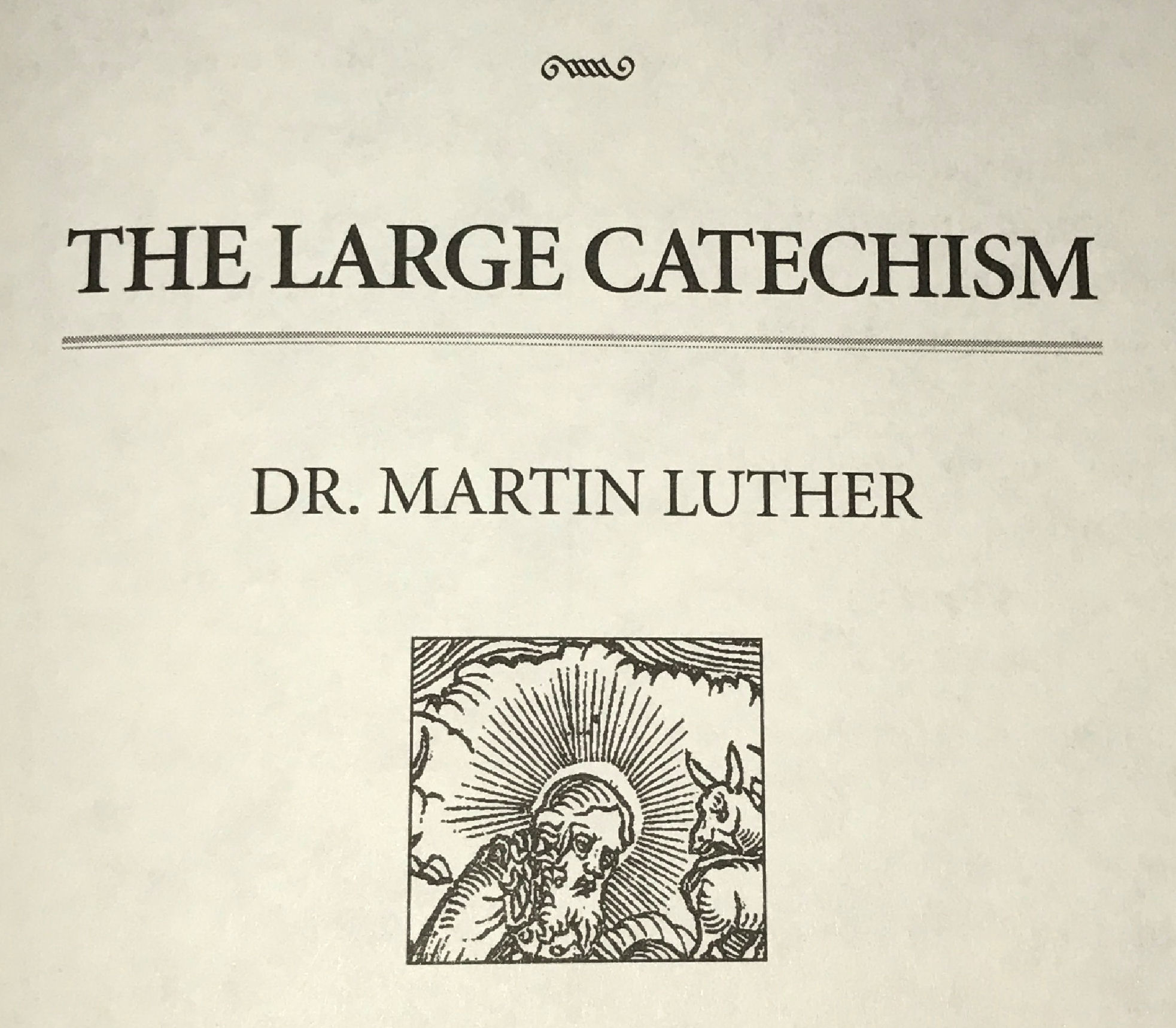
Martin Luther’s Large Catechism remains for most Lutherans an unheralded and unknown document. We are familiar with the Small Catechism, as it is generally a required textbook for most confirmation classes, but the Large Catechism has not enjoyed the recognition of its shorter counterparty.
This is a shame, because it is my opinion that the Large Catechism is the most important Lutheran document ever written. While it lacks the historical significance of the Augsburg Confession, it is simply unparalleled as far as content is concerned.
The Small Catechism does a remarkably efficient and succinct job at laying out the basic foundations of our faith. It does this in an orderly fashion, moving from Law (Ten Commandments), to Gospel (Apostles’ Creed), to prayer (Lord’s Prayer), to Sacraments. The Large Catechism builds on this pattern and adds meat to the basic skeleton that is laid out by the Small Catechism.
Luther is perhaps at his best in the Large Catechism. As he expounds on the Ten Commandments, he explains how the Law not only prohibits sinful activity, but it also promotes the opposite—virtue. For instance, when we are told in the First Commandment, “You shall have no other gods before Me,” this does more for us than just forbid idolatry. It also prescribes for us the one true God as the object of our faith. This theme carries throughout all ten of the commandments.
As he moves to the Apostles’ Creed, Luther explains who God is for us. Each Person of the Trinity provides for us in unique ways. God the Father uses all of His good creation to provide for us on a day-to-day basis. God the Son redeems us as our Lord. According to the Creed, each part of Jesus’ incarnation, birth, life, death, resurrection, and ascension is the good news of the Gospel for us. God the Holy Spirit is our sanctifier, and according to Luther in the Large Catechism, sanctification entails living the Christian life under the good news of the Gospel.
In the Lord’s Prayer, Luther explains that we pray not to change God’s mind or to remind Him what we need. We pray in order to remind ourselves what God is already doing. The Large Catechism closes with some excellent and more thorough thoughts about the Sacraments and their benefits for us as Christians.
If you haven’t ever taken the time to read through the Large Catechism, I highly recommend that you do. It’s relatively short, and makes for excellent devotional reading.
Pr. Jason Gudim
Faith Free Lutheran Church
Minneapolis, MN
Resources that include the Large Catechism
March 22, 2017
Lutheranism 101
Review by Pr. Les Johnson
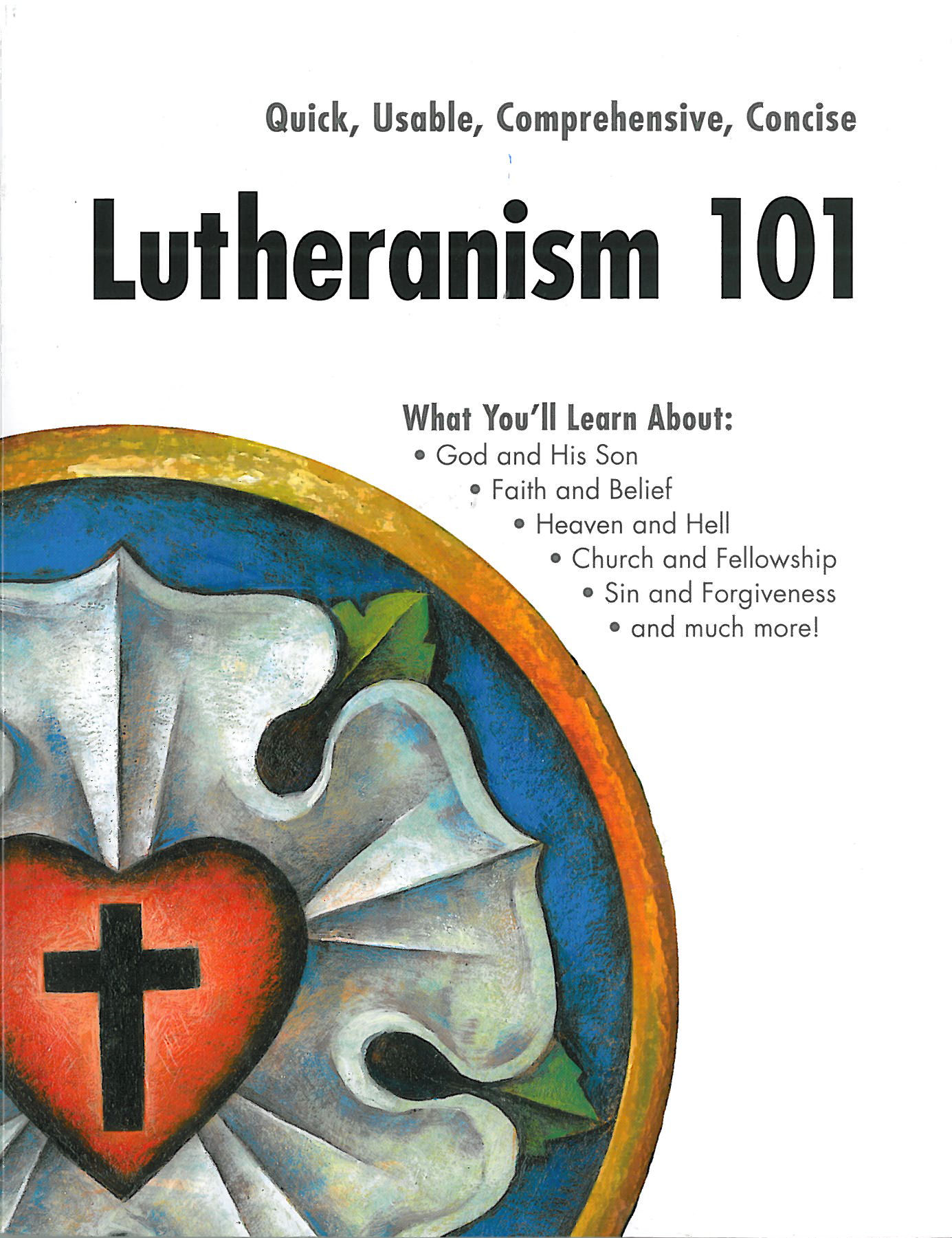
Lutheranism 101 presents a good overview of confessional Lutheranism in an easy-to-read style through the use of short articles, sound bites, sidebars, and illustrations while offering a concise, easy-to-read explanation of what Lutherans believe and why. The book helps create a solid foundation of reference for anyone interested in learning or reviewing the fundamentals of Lutheranism. The subject matter is abundant, covering the primary doctrines of Christianity from the Lutheran understanding, a thorough discussion on the means of grace, the history of Lutheranism from the time of Luther into the modern era, and many other significant topics in the main chapters and in several appendices. The book is laid out and explained in an easy-to-understand way and a systematic order. (It is, however, written from the standpoint of Missouri Synod Lutheranism, so the reader will discover a few subjects that vary from the emphasis or teachings of the AFLC.)
I can recall a fellow seminary student who returned to class one fall and stated that he had spent the summer reading the Book of Concord and refreshing himself in the teachings of our Lutheran faith. He stated, and I agree, that we have inherited a real “treasure” in the theology of Luther and the Reformers. Much of the conservative, biblical literature of our day is not written from the perspective of our solid, biblical heritage as Lutherans. All too often today, American Christianity teaches the centrality of the individual—“my will, my experiences, my decision, my heart, my work, my dedication, etc.” All the while, Christ and His saving and sanctifying work are being lost. Our minds and hearts are charmed in some way by those who regularly preach or teach on the subject of the Christian instead of Christ.
I would highly recommend Lutheranism 101 as a timely study or review of the precious doctrines of Lutheran Christianity. As a pastor, I have been blessed by the annual teaching of Luther’s Small Catechism and Explanation. The Lutheran emphasis on the proper distinction between Law and Gospel as it relates to justification and sanctification results in a blessed experience of the study of and application of Scripture to our lives. How important it is to consistently recall the three fundamental principles of the Reformation, “by grace alone, through faith alone, in Scripture alone,” and Lutheranism 101 keeps the reader in touch with all of our critical Lutheran emphases.
Pr. Les Johnson
Christ the King Lutheran
Wilson, WI
Order your copy here: Ambassador Publications Online Store
Also Available:
March 29, 2017
The Mother of the Reformation: The Amazing Life and Story
of Katharine Luther
Review by Diane Brubakken
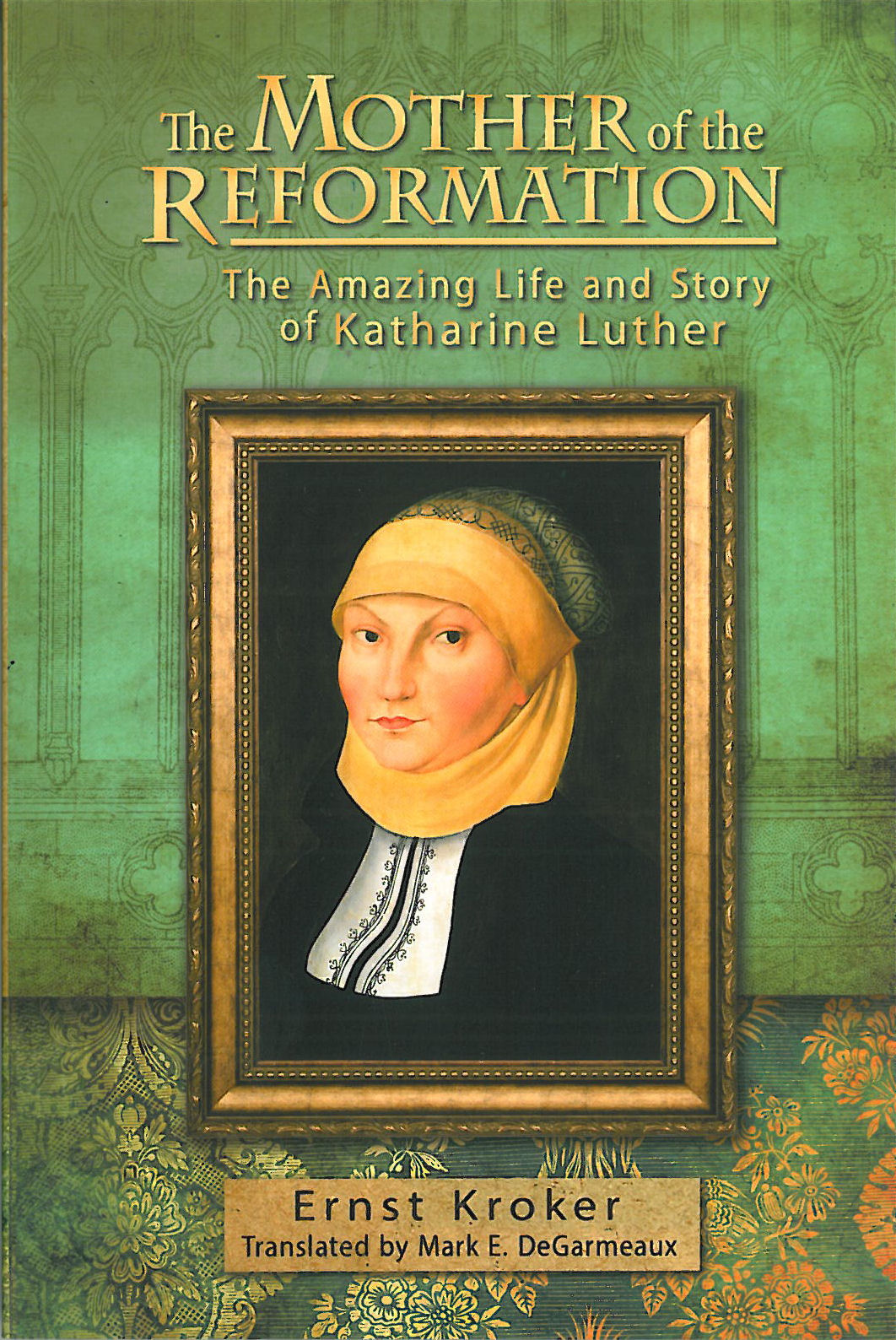
If you were to ask someone, particularly a Lutheran, to name a woman involved in the Reformation, Katharine von Bora Luther is probably going to be the woman named. While far from being the only woman involved in the Reformation, as Martin Luther’s wife, she stands out as an influential and intriguing figure. Which is why last June, I picked up the book The Mother of the Reformation: The Amazing Life and Story of Katharine Luther and intended to read it once I had some time to spare . . . Fast forward to winter, and I still hadn’t gotten around to it. So, when I was considering which book to review, it seemed like the perfect time to read this one.
The Mother of the Reformation, an English translation by Rev. Mark. E. DeGarmeaux, is a thorough biography on Katie Luther. It was originally written in German in 1906 by Ernst Kroker, who sought to separate fact from fiction where Katie was concerned. With little source material from Katie herself, Kroker compiled a great deal of information using a wide array of sources from those around Katie in order to give readers a more complete understanding of who she was and what her life was like.
I really appreciated that this biography was not just dry facts. It took the information about a woman who could have easily been reduced to being just a name or caricature of someone associated with the Reformation and Martin Luther, and revealed her to be so much more. Kroker comments that “she was a woman with strong emotions, and she knew how to love and how to hate” (269). Kroker does his best to show her to be a real person, with strengths and weaknesses, and with her own struggles that she faced throughout her life.
The author does an amazing job of piecing together Katie’s life before she married Martin Luther, while they were married, and after he had died. Through it, we get to see a woman who was strong and determined (as well as proud and stubborn) in her own right. Kroker says that she was “a woman who carried through on what she really wanted” (p.97), whether it concerned who she would marry or how she managed her household and property. This book not only gives you a good representation of the facts that can be known surrounding Katie Luther’s life, but also gives you a chance to get to know the woman behind them.
Diane Brubakken
AFLC Parish Education Administrative Assistant
Plymouth, MN
Order your copy here: Ambassador Publications Online Store
Also Available:












